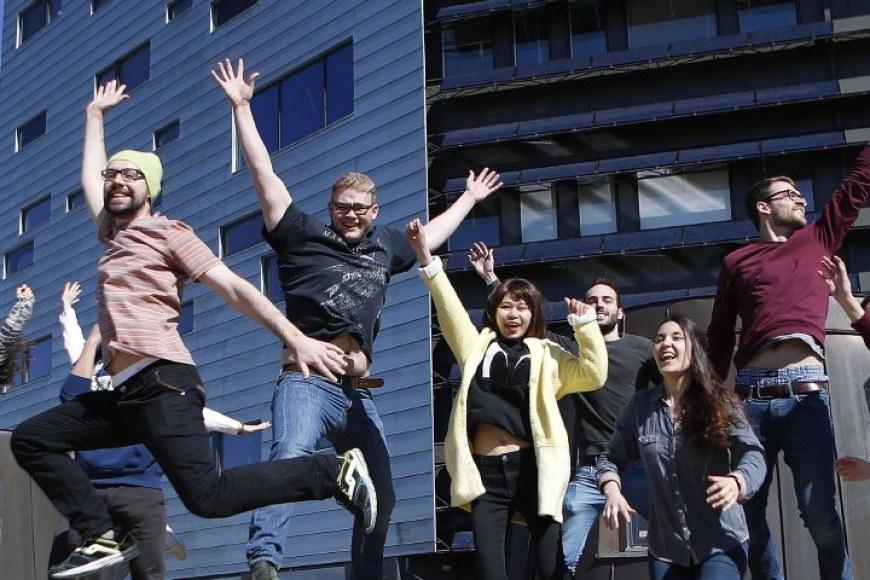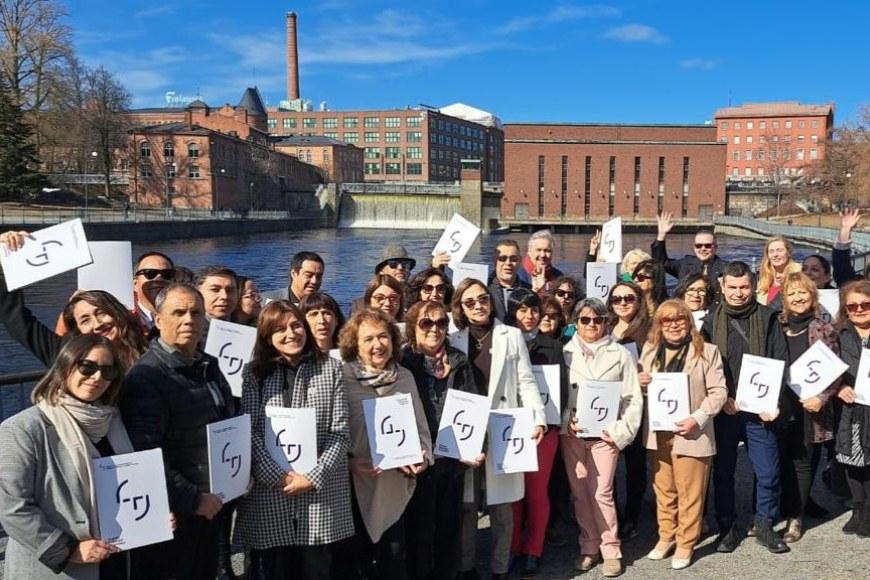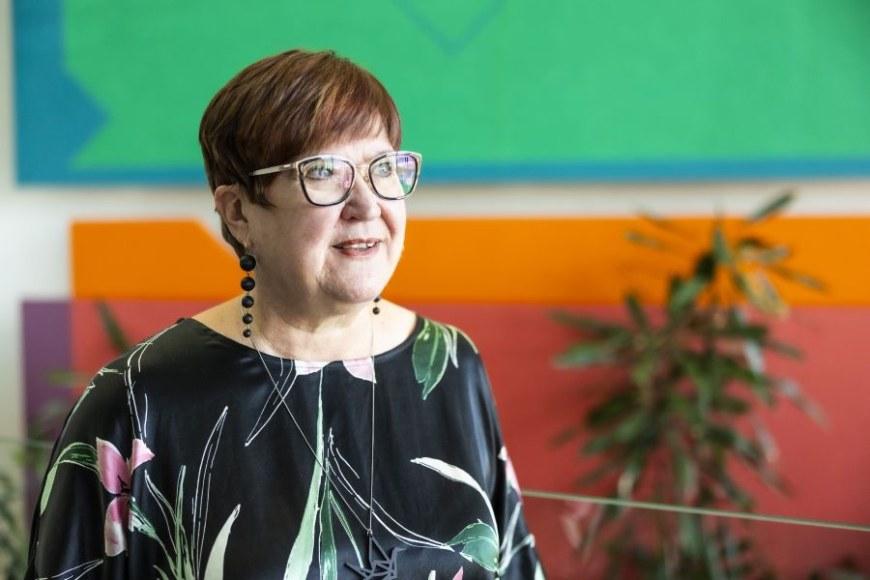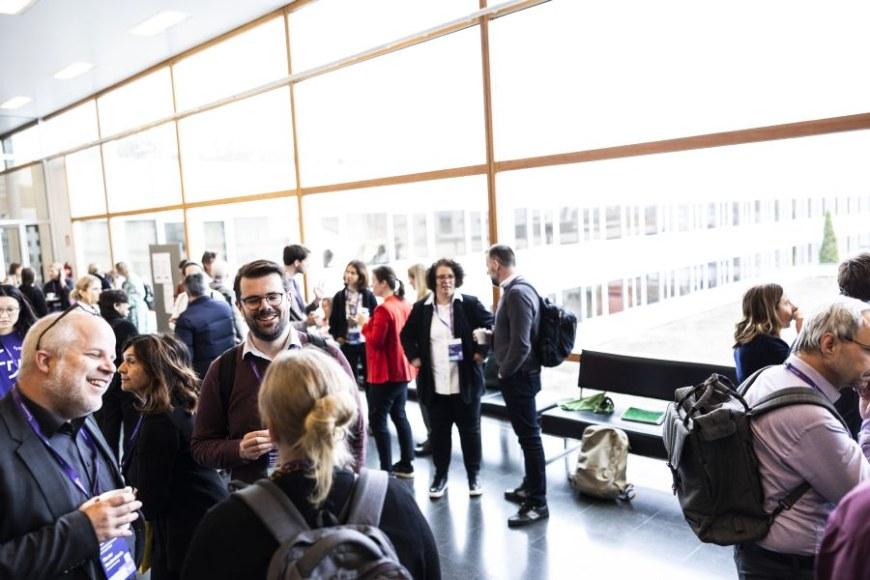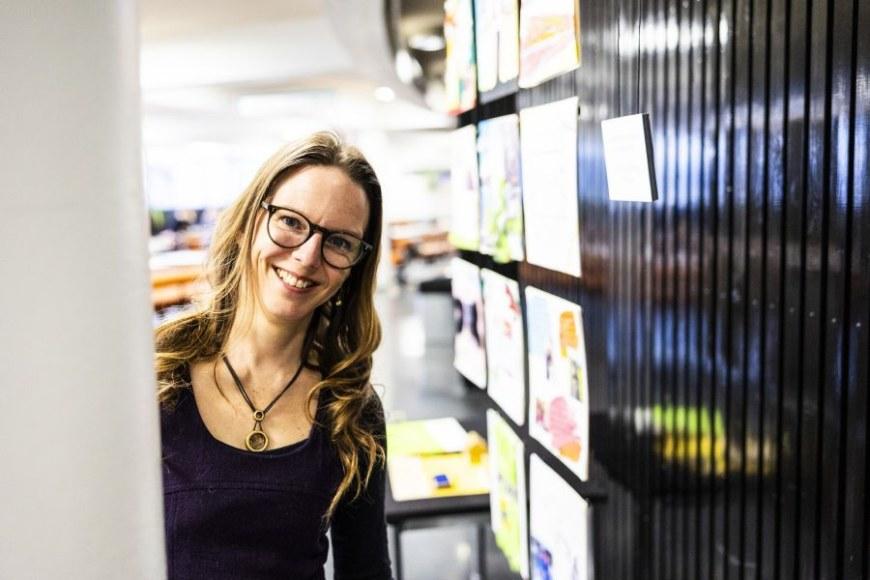Corona pandemic affects wellbeing and mental health for a long time
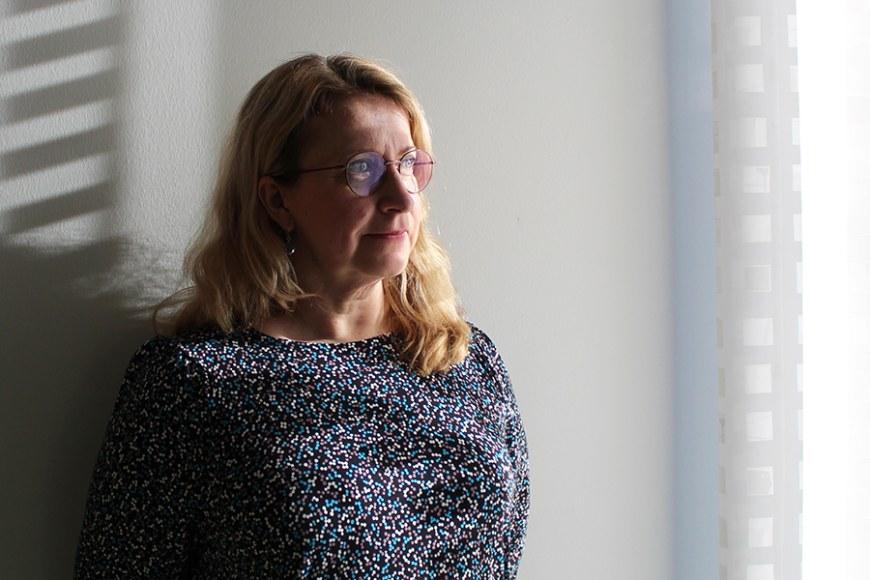
Tampere University of Applied Sciences’ Principal Lecturer Nina Kilkku compares the effects of the pandemic to circles on the water caused by throwing a stone into the water. She follows the corona pandemic’s effects on mental health from an international vantage position as the president of the European Psychiatric Nurses organisation, Horatio. Horatio represents 20 countries in Europe.
“Our mental health is built in human relationships. Certainly there are people who enjoy being alone but not on this scale and this way. The situation has now lasted for a long time and isolation has been forced,” Kilkku says.
Based on international research, changes have already taken place in our mental health. Pandemic-related isolation, fear of infection and loneliness are known to be mental health risk factors.
“We are all in the same boat in different countries. We all face social isolation and fear of exposure or infection, also people who deal with other people’s emotional distress in mental health services. Stress levels are high.”
According to Kilkku, it seemed for a while in the spring that people did not seek psychiatric treatment or mental health services. Maybe they were afraid of the risk of infection even if they had needed help.
“At the moment, there is a lot of need for mental health services. The number of calls to helplines is very high. It tells about how the current situation affects our mental health. It is good that people do not try to cope by themselves too long.”
In many countries, people are hopeful about the vaccines.
“Knowledge of the vaccines gives hope but at the same time related availability problems increase scepticism. People do not have the courage to believe in the future.”
According to Kilkku, the pandemic may have long-term effects as it affects a large group of people for a long time.
“We are living in historic times but we can learn from prior traumatic events. This will affect people’s wellbeing and work for a long time.”
Student wellbeing worries
Kilkku is especially worried about students. Many new students have already been alone for a year in a new place.
“Some of them moved to a new place for the first time in their lives. They do not necessarily know anyone and their life may centre on their flat, Teams, Zoom and the neighbourhood shop. The situation is worrying because the life phase is connected with strong demands for independent coping and academic progress.”
Kilkku says that we cannot afford to lose future professionals.
“Students’ messages about not coping anymore are alarming. Our society cannot afford to lose future professionals, not to mention what the individuals feel.”
Kilkku is in charge of the mental health and substance abuse studies in TAMK’s Master’s Degree Programme in Clinical Expertise.
“My students are mental health professionals and they also have a hard time in the situation. I have online morning coffees with them once a month to keep in touch with them and offer them the possibility to discuss matters.”
Fear of death and exhaustion are present at work in every country
Finnish and international concerns include nursing professionals’ fear, exhaustion and risk of falling ill.
“In some countries, psychiatric hospital wards were cleared for corona patients. The nurses are now working in very different tasks than earlier. Worries are however quite the same in different countries. Nurses’ wellbeing challenges can be seen in mental health services around Europe.”
The International Council of Nurses (ICN) reports on health care staff died of corona.
“By the end of 2020, over 2,200 nurses died of corona. Some also suffer from long-term symptoms, just as patients. Nurses are also worried about infecting their close relatives. The emotional load is a risk for nurses and their wellbeing and mental health.”
Kilkku tells that some Finnish nurses have also changed to another profession or consider it.
“We are especially worried about the shortage of nurses as it will not improve in the future. It was discussed last spring if nurses can be ordered to work based on legislation. Many future professionals may have considered if they want to work in such a field. Fortunately, the order was not needed.”
Kilkku hopes that positive news on what working as a nurse offers would also be highlighted.
“Nursing is a good, interesting and rewarding field. Unfortunately, the corona pandemic only raises negative aspects of the field.”
How are you doing?
Kilkku, who has worked as a psychotherapist for a long time, tells that now if ever we should take care of each other.
“’How are you doing’ is an important question for all of us now during the pandemic.”
According to Kilkku, small deeds play an important role: call and ask your friends how they are doing, listen and be for them. Sometimes it is all that is needed. Small deeds may open the path to discussion.
“It is important to hold on to daily routines: to eat, sleep and go outdoors. You need to have a reason for getting up. It is extremely important to structure your days,” Kilkku specifies.
Nina Kilkku
- principal lecturer, Tampere University of Applied Sciences
- teacher in charge of Mental Health and Substance Abuse in the Master’s Degree Programme in Clinical Expertise
- PhD in nursing science
- psychiatric nurse, family and couples psychotherapist
- president of the European Psychiatric Nurses organisation, Horatio. Horatio aims at affecting European decision-making on mental health nursing and promoting development of mental health nursing practice, education, administration and research.
- member of Tampere University’s Science Council and a steering group member of the Sustainable Welfare Systems project
- Fellow of the Faculty of Nursing and Midwifery in Royal College of Surgeons, Ireland (FFNMRCSI)
Text: Arja Hautala
Photo: Emmi Suominen
